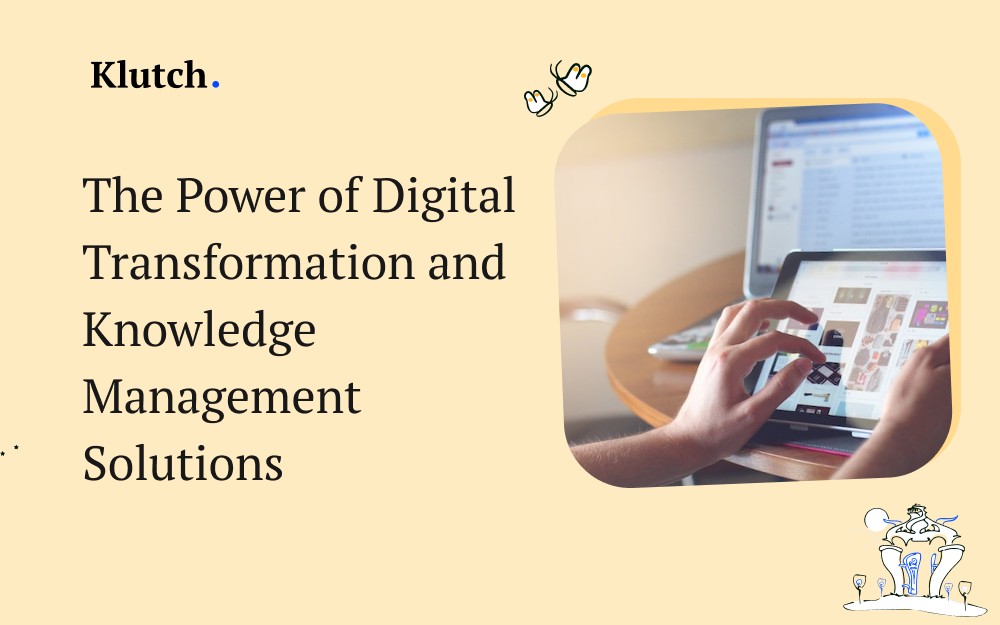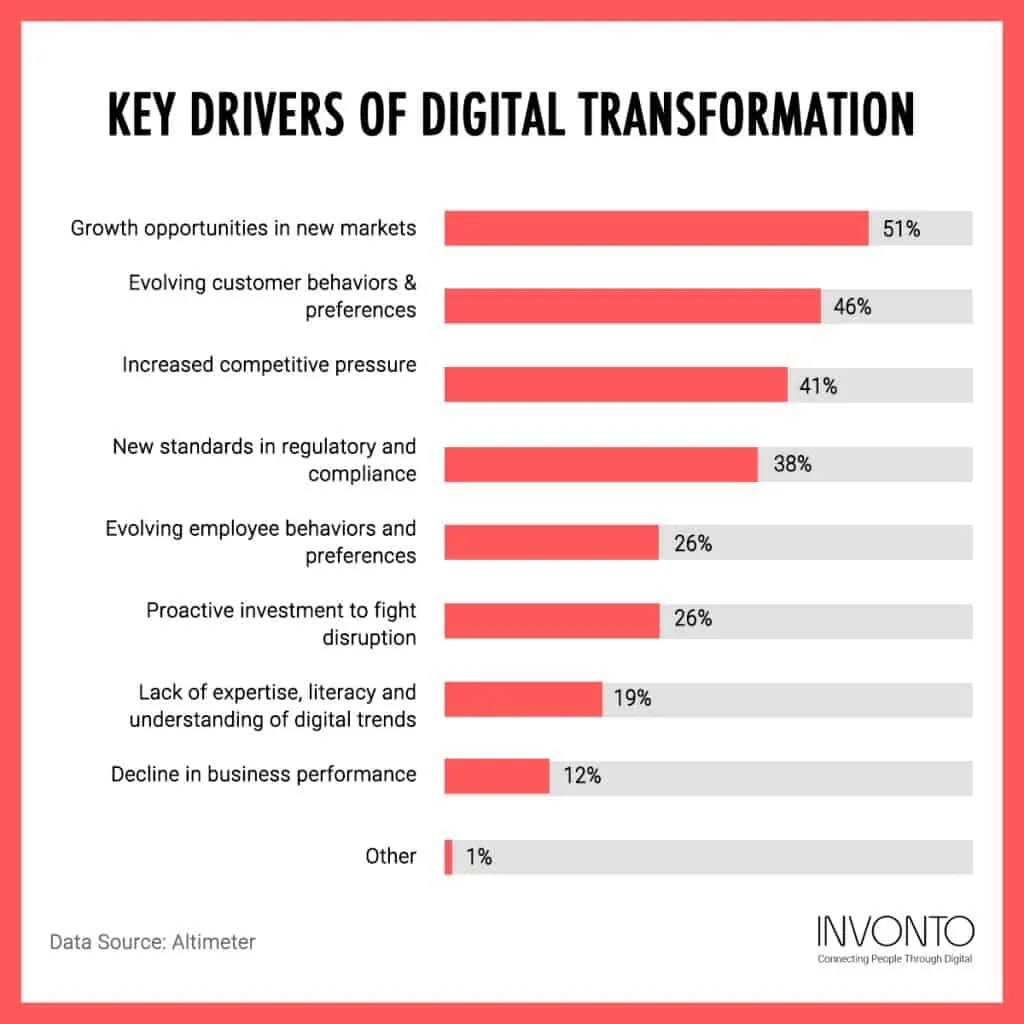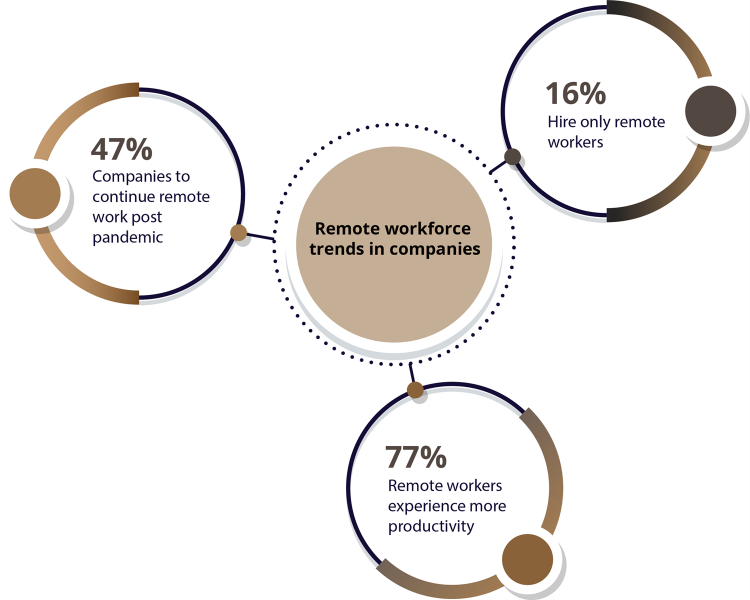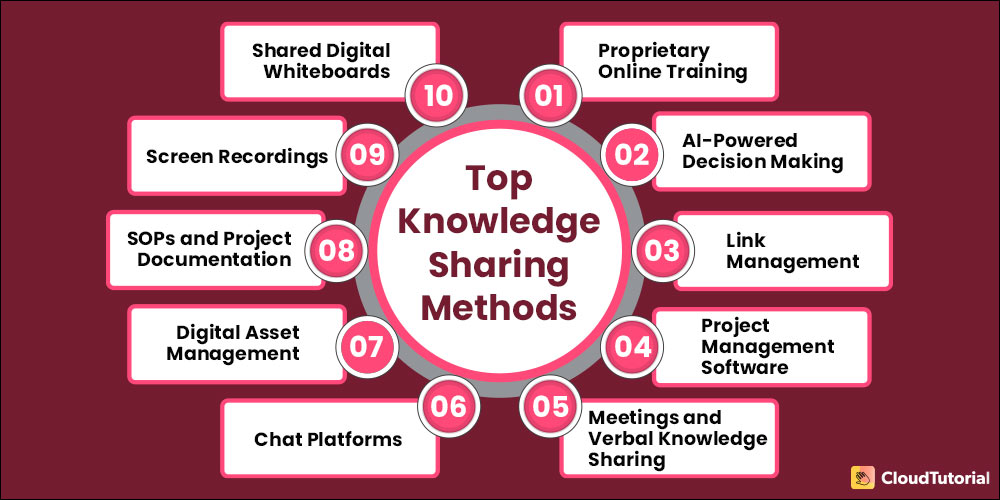A new era of business practice, collaboration, and communication has emerged due to the COVID-19 pandemic.
Businesses all around the world have had to become more adaptable and flexible in how they conduct their daily workings. When state quarantine mandates went into effect starting in March of 2020, creative solutions were necessary to continue the day-to-day work cycle.
Along with educational institutions such as schools and universities, companies began to embrace video conference technologies such as Zoom and Google Meet.
Beyond proficiency tools like these applications, knowledge sharing was a central key to maintaining high function that companies had to consider.
If knowledge is successfully shared with employees of a company, this can boost productivity and efficiency.
When knowledge is easily accessible to new and veteran employees, wasted time is limited. There is truth in the old saying, “time is money.”
Digital Transformation
According to Forbes, digitization “refers to taking analog information and encoding it into zeroes and ones so that computers can store, process, and transmit such information.”
With respect to the COVID-19 pandemic, digitization has rapidly increased and evolved. Now more than ever, business communications and internal documents are becoming digitalized. This allows companies to operate in a digital space. Additionally, a digital transformation also means an updated business model.
Convenience
With digitalization, companies can improve their processes and earn more revenue. Information sharing internally and externally has become way more convenient.
Technological advancements have predicted this future. Long gone, for most companies, are the days of endless file cabinets. This evolution was inevitable. However, the pandemic and its challenges made digitization an urgent undertaking.
More Flexibility
Once mandates ended, more flexibility was offered in how businesses desired to operate. Some chose to continue being remote, while others offered a hybrid model (with days at home and in-office). Depending on company preferences and size, returning to the office full time became an option as well.
Remote or Hybrid Business Model
It is noteworthy to mention that many companies chose to maintain a remote or hybrid model for an extensive period (even up to the present). The workplace and what entails a workplace have been adjusted, quite possibly permanently.
These trends became commonplace not only in the American workspace but around the globe. Remote work, while offered before the pandemic, has now become a very recurrent operation technique. Studies have shown that remote working opportunities will continue to be present well after the pandemic.
The Need For Knowledge-Sharing Solutions
This thus presents the need for digitization and knowledge-sharing solutions. A simple email platform and video conferencing service are not sufficient. To successfully implement a remote work environment, a more complex and inclusive system is required.
Similar to remote operations, a hybrid model has become a reliable compromise. A portion of work will be completed virtually, and office days are limited to a couple of times a week or even monthly.
Effective communication is a must for employees so that they can reach company goals. A singular platform will be needed to keep the overall experience consistent both at home and in the office.
Both remote and hybrid operational methods have pros and cons. One of the most discussed cons of remote work (full time or days) is its limitations on employee interaction and company culture. Video conferencing is just not the same as seeing team members in person.
Employees, working from home, might not be as energized to work their eight- or nine-hour shift if they are only a room away from their bedroom. This is a complication companies have every right to consider and find solutions for.
COVID has truly changed how businesses worldwide function, and certainly, some of the trends that grew during the early stages of the pandemic will be present for years to come. To be a successful and long-term enterprise in the 21st century, progression is bound to occur. To a company’s benefit, being at the forefront of this transformation can have great implications.
Knowledge Management and Its Effect on Digitalization
A business’s digital transformation requires a lot of effort and time. It is not an easy thing to accomplish. Every company document or resource will have to digitize to successfully complete a digital transformation.
Additionally, there are papers that would have to be filled out to officially record the transformation. Finally, it is vital that a knowledge management solution is at hand for the transformation.
Once company information is uploaded to a server, it will need to be organized in a fashion that is easy for employees to filter through. This is where knowledge management tools and wikis come to play.
Using corporate wikis, knowledge management software, and knowledge-based software, businesses can share important information with a variety of employee group sizes. Group sizes can vary from a specific team to the whole company community. Wikis are simply databases where information is stored and available to view.
As an example, a corporate wiki (also known as a company internal wiki) would be accessible to every employee, while a team wiki would be exclusive to an individual team. These databases offered by companies are extremely helpful and can increase turnaround and capability. By having comprehensive storage of information, working can become a more pleasant experience.
Similar to wikis, knowledge base tools provide a wealth of content. ITSM defines a knowledge base as “a self-serve online library of information about a product, service, department, or topic.” A knowledge base is not only important for remote and hybrid approaches but the typical in-office or on-the-road workday.
Take, for example, a salesperson who is on the road meeting with prospective clients about retirement and life insurance. Instead of carrying 500 pages of printed content and frantically searching for the correct information, it would be far easier to have a tablet with a company application that has specific files about different plans.
The salesperson will be trained to access the required documents quickly, and a lot of time will not be wasted.

Perhaps even more importantly (at least with respect to the specific sale and building client report), the sales representative will not get flustered and agitated. Businesses do not want a nervous or angry employee representing the company in a customer’s home. That would be almost a guarantee to lose a valuable sale. The point here is that the acquisition of a knowledge management tool is an important long-term asset.
With a digital-based knowledge management solution, a company can successfully make a digital transformation, while retaining a focus on productivity and employee morale. If a base of knowledge is clearly developed, employees will be able to quickly look up information.
This will eliminate the frustration of wasting time on content searching from the point of view of an employee.
Remember the salesperson example just shared above. Employees can easily get upset if they have to spend more time than necessary to look up something they need to know internally or share with a client.
Even worse is when companies forget the importance of sharing imperative knowledge with their workforce. The International Data Corp has stated that “Fortune 500 companies lose at least $31.5 billion a year by failing to share knowledge.”
This is a very concerning and startling statistic! If a business wants to be successful, do not underestimate the criticalness of information sharing.
In the age of the COVID-19 pandemic, the most compelling way to ensure this does not happen is the investment in a strong knowledge management solution.
Collaboration is imperative in any work environment, regardless of location or operational approach. A knowledge system can make sure all employees are well educated and in other words, on the same page.
This in turn would encourage smoother collaboration, as well as fast onboarding. Without a sense of consistency and clear company values and expectations, the quality of work will deteriorate.
A knowledge base or knowledge management tool not only affects employee attitude and behavior but offers a sense of peace of mind to company leadership.
Executives can take comfort in knowing that their employee community can partake in an interactive and absorbing environment, regardless of location.
Working online brings certain difficulties and having tools for better team engagement is key. It is teams and their hard work that ultimately drive the activities of each workday and in turn, produce results.
Businesses have a responsibility to adequately prepare and support their employees, especially in unique times like the pandemic brought.
The Bottom Line
To successfully have a digital transformation in today’s business environment, a knowledge management system is required.
Fortunately, there is a variety of different knowledge management solutions for companies to select from. One noteworthy option is Klutch. The system allows businesses to carefully organize their internal and external documents and files.
The service includes both corporate and team wikis, allowing companies to select who the information is shared with. Soon, it will offer a Slack wiki option to clients, allowing for more effective team communication across the whole business.
Klutch can assist any business in its digital transformation. It allows for flexibility and customization so that the knowledge-sharing experience is to each business’s standards and desires. Try Klutch for free!






